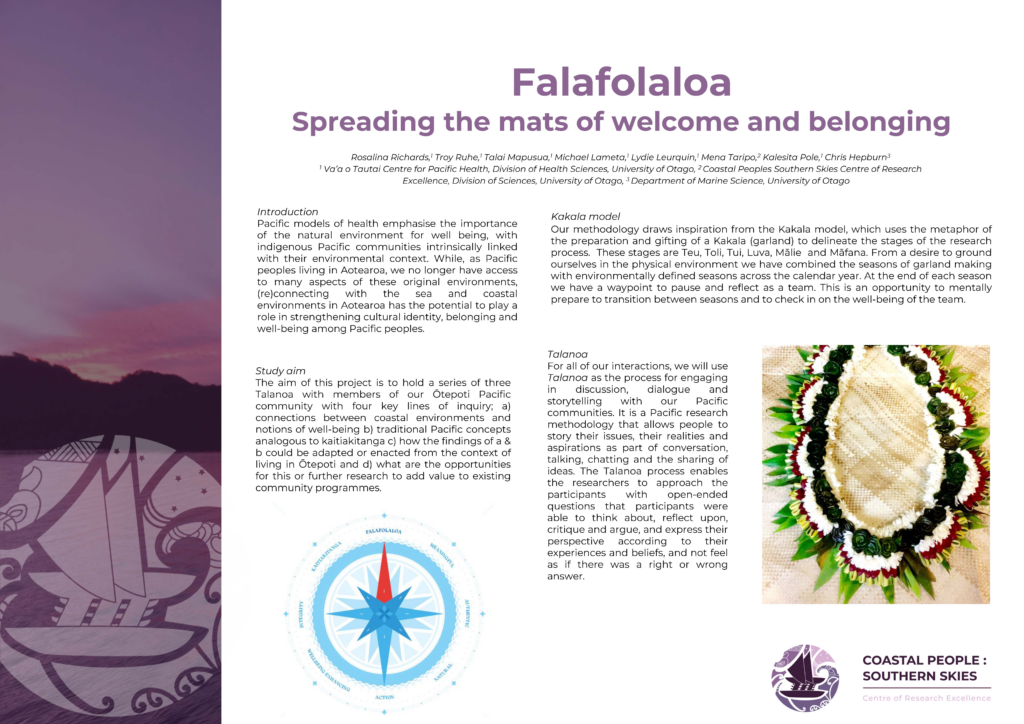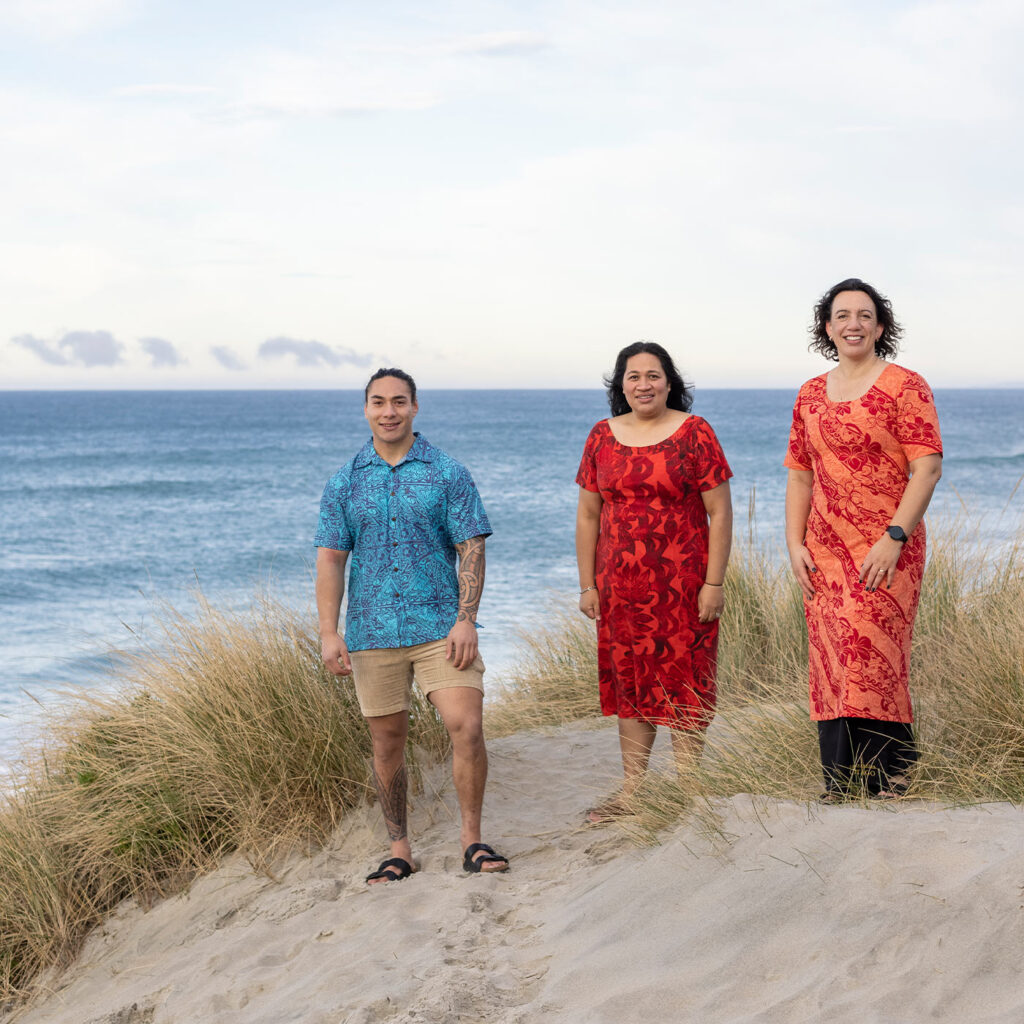Project Leader(s) Associate Professor Rosalina Richards (UoO)
Project Team Dr Troy Ruhe, Talai Mapusua, Michael Lameta, Professor Chris Hepburn
Pacific models of health emphasise the importance of the natural environment for well-being, with indigenous Pacific communities intrinsically linked with their environmental context. While, as Pacific peoples living in Aotearoa, we no longer have access to many aspects of these original environments, (re)connecting with the sea and coastal environments in Aotearoa has the potential to play a role in strengthening cultural identity, belonging and well-being among Pacific peoples.
Falafolaloa is the name gifted to this project, meaning to welcome everyone to the mat. This refers to the Samoan context where mats are rolled out and spread in a circular form to indicate a meeting will take place to talanoa (i.e. to share ideas, experiences, story-telling, and decision-making). The name reflects the multiple levels of purpose for this project. During the process, as members of both the Ōtepoti Pacific and CPSS CoRE communities, we welcome our leaders, friends and colleagues to the mat to connect and find opportunities to add value to the important tasks each are undertaking. We also have a specific project objective, which is to surface perspectives from our local Pacific community about using our coastal environment to spread the mats of welcome and belonging for current and future Pacific peoples living in Ōtepoti.
Our methodology draws inspiration from the Kakala model, which uses the metaphor of the preparation and gifting of a Kakala (garland) to delineate the stages of the research process. The Kakala is a Tongan metaphor and research methodology, however, the process of making flower garlands is a valued practice throughout the Pacific. This process begins with Teu, or the preparation. This stage will include a literature review of Pacific coastal environment and well-being and an initial set of Talanoa with community leaders (n = 20) to share findings from this review and seek advice on key lines of enquiry, processes and participants.
Toli is the collection and section of materials for the garland, in our case the main data collection for the study. While these plans may be adjusted based on feedback during Teu, our starting aim and process are described here. Our aim is to Talanoa with members of our Ōtepoti Pacific community (n = 30) with four key lines of inquiry; a) connections between coastal environments and notions of well-being b) traditional Pacific concepts analogous to kaitiakitanga c) how the findings of a & b could be adapted or enacted from the context of living in Ōtepoti and d) what are the opportunities for this or further research to add value to existing community programmes.
Tui refers to the weaving of the kakala, or the weaving together of knowledge. This will take place as thematic analysis of the transcripts of each of the Talanoa, with the research team theming separately, combining themes and finding consensus on key overarching themes. These findings will be presented back to each participant in a third set of Talanoa (n = 30). This third visit serves multiple purposes, first, being the Luva or the gifting of the Kakala back to our participants and the wider Pacific communities that we serve. It is also a time for Mālie, the evaluation of the research process and the validity of the findings by participants, and Māfana, a time for reflection on long-term impact of the research for the researchers and community. The feedback from the third Talanoa will be integrated into publications, as an important test of our reflective practice.
While this study is relatively small, we hope that its ripples will extend further throughout the core. By spreading the mats of welcome the study processes and findings will form a foundation from which new projects and opportunities for capacity development will be identified and progressed, including ethnic specific research, active engagement with marine environments and strengthening links with the wider Pacific region.


